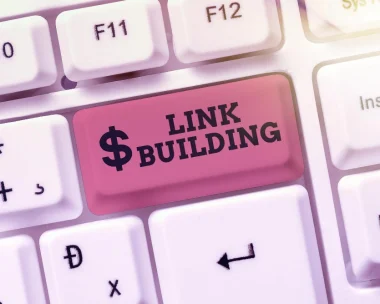Link Strategy The Do’s and Don’ts of Link Building

Link building remains a cornerstone of search engine optimization (SEO). By acquiring high-quality backlinks, you can improve your website’s authority, boost search engine rankings, and drive more traffic. However, not all link-building practices are created equal. To achieve the best results and avoid potential pitfalls, it’s essential to follow best practices and steer clear of common mistakes. In this blog post, we’ll explore the dos and don’ts of link building to help you build a strong and effective backlink profile.
The Dos of Link Building
Do Focus on Quality Over Quantity
When it comes to link building, quality is far more important than quantity. A few high-quality backlinks from authoritative and relevant sites can have a more significant impact than numerous low-quality links.
- Relevance: Ensure that the sites linking to you are relevant to your industry or niche. A backlink from a reputable site within your industry is more valuable than a link from an unrelated site.
- Authority: Aim for links from high-authority domains with strong credibility. Tools like Moz’s Domain Authority (DA) or Ahrefs’ Domain Rating (DR) can help assess a site’s authority.
Do Create Valuable Content
The foundation of successful link-building is high-quality content that provides value to your audience.
- Informative Blog Posts: Write detailed and informative blog posts that address common questions or problems in your industry. Well-researched, comprehensive content is more likely to attract backlinks.
- Engaging Infographics: Create visually appealing infographics that present data or insights in an easy-to-understand format. Infographics are often shared and linked to by other sites.
- Case Studies and Research: Share original research, case studies, or industry reports. Unique and data-driven content is highly linkable and can attract attention from authoritative sources.
Do Build Relationships with Industry Influencers
Networking with influencers and thought leaders in your industry can lead to valuable backlink opportunities.
- Guest Posting: Offer to write guest posts for industry blogs or publications. In exchange for your valuable content, you can include a link back to your site.
- Collaborations: Collaborate with influencers on content or projects. This can result in mentions and backlinks from their websites or social media channels.
- Engagement: Engage with influencers on social media and participate in industry forums or groups. Building genuine relationships can lead to natural link-building opportunities.
Do Utilize Outreach Campaigns
Outreach is a proactive approach to acquiring backlinks. It involves contacting other websites or bloggers to request a link.
- Personalized Emails: Craft personalized outreach emails that clearly explain why your content is valuable and why it would be relevant to their audience. Avoid generic or spammy messages.
- Follow-Up: Be prepared to send follow-up emails if you don’t receive a response initially. Persistence can increase your chances of securing a backlink.
- Leverage Existing Relationships: Reach out to websites or contacts you already have a relationship with. A warm introduction or existing connection can improve the likelihood of getting a link.
Do Monitor Your Backlink Profile
Regularly monitoring your backlink profile is essential to ensure the quality and relevance of your links.
- Use SEO Tools: Utilize tools like Google Search Console, Ahrefs, or SEMrush to track your backlinks and identify any potentially harmful links.
- Disavow Toxic Links: If you identify low-quality or spammy backlinks, use Google’s Disavow Tool to prevent them from negatively impacting your site’s SEO.
- Analyze Competitors: Monitor your competitors’ backlink profiles to identify potential opportunities for your link-building efforts.
The Don’ts of Link Building
Don’t Buy Links
Purchasing backlinks is a risky practice that can lead to severe penalties from search engines.
- Search Engine Penalties: Search engines like Google actively penalize sites that engage in link-buying schemes. This can result in a drop in rankings or even removal from search results.
- Low-Quality Links: Purchased links are often from low-quality or irrelevant sites, which can harm your site’s credibility and authority.
Don’t Use Black-Hat Techniques
Black-hat link-building tactics are unethical and can lead to long-term damage to your SEO efforts.
- Link Farms: Avoid participating in link farms or networks that offer mass link exchanges. These practices are considered manipulative and can result in penalties.
- Hidden Links: Refrain from using hidden or cloaked links, such as placing links in invisible text or behind images. Search engines consider these tactics deceptive and can penalize your site.
Don’t Rely on Automated Link-Building Tools
Automated tools that promise to generate backlinks quickly are often ineffective and potentially harmful.
- Low-Quality Links: Automated tools may generate low-quality or irrelevant links that can harm your site’s SEO rather than improve it.
- Search Engine Detection: Search engines are adept at detecting unnatural link patterns and can penalize sites using automated link-building methods.
Don’t Neglect On-Page SEO
While link building is important, it should be part of a broader SEO strategy that includes on-page optimization.
- Content Quality: Ensure that your website’s content is high-quality, relevant, and optimized for target keywords. Strong on-page SEO provides a solid foundation for successful link-building efforts.
- Technical SEO: Address technical SEO issues, such as site speed, mobile-friendliness, and crawl errors, to ensure that your site is easily accessible and provides a good user experience.
Don’t Ignore Local SEO
For businesses with a local focus, neglecting local SEO can mean missing out on valuable link-building opportunities.
- Local Directories: Submit your site to relevant local directories and business listings. These can provide valuable backlinks and improve your local search visibility.
- Local Partnerships: Partner with local organizations, charities, or events to gain backlinks from local websites and improve your local SEO efforts.
Conclusion
Effective link-building is a critical component of a successful SEO strategy. By focusing on quality, creating valuable content, building relationships, and avoiding common pitfalls, you can enhance your website’s authority, improve search engine rankings, and drive more traffic. Remember, link-building is not a one-time effort but an ongoing process that requires dedication and adherence to best practices. Start implementing these dos and don’ts today to build a strong and effective backlink profile that supports your overall SEO goals.


